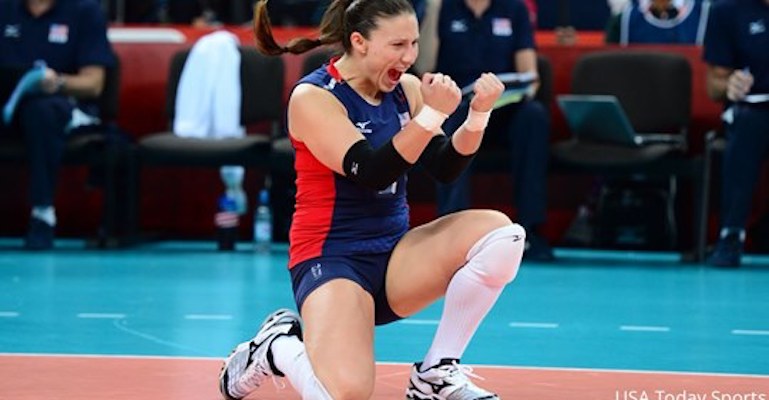Being the Best Setter in Volleyball Means Knowing the Game
Have you ever thought about how many points are lost during the course of a season because someone on your team didn’t know that the opposing setter was in the front row? It’s the setter’s job to make sure that doesn’t happen. It’s the setter’s responsibility to know everything. Sounds tough, and it is. That’s why exceptional setters are hard to come by. But the best setter in volleyball knows the game. Like no other.
And they become the best leaders.
Volleyball IQ = Leadership
Dating all the way back to middle school, I was known as a leader. I was the best on the team. I was passionate. And I voiced it. Isn’t that what a leader is?
_______________________________
GET CONNECTED:
Follow SportStars on Twitter & Instagram | Like us on Facebook | Subscribe!
_______________________________
You can definitely start there. That’s a good base. But the best leaders work on improving their leadership skills just as much as they work on improving their physical and playing skills.
I’d say I really began to understand this when I was a freshman at the University of Minnesota.
There was an older setter starting ahead of me when I arrived. I was prepared for that, but I knew I had to go above and beyond to make sure I was on the court. At first, I didn’t want to step on any toes because I was the newcomer, but that only lasted about a week.
The team had leaders, including the type of leader I mentioned above. But they didn’t have this leader.
I began to talk to everyone more and get to know them better. You want to ask questions to players and coaches. Take everything in. Ask specifics. What kinds of sets do each of your teammates want? Take responsibility if you don’t provide exactly what they want.
When I could, I would stay late after practice. I would demand the most from myself. That is what a leader does. I got better and better at communicating, understanding my teammates and, at the end of the day, making everyone around me better. That’s the last skill I want to emphasize.
MAKE YOUR TEAMMATES BETTER
A coach can’t leave you on the bench if you make your teammates better. As you become a better leader, the skills associated with that will make your teammates better.
And if you communicate with them consistently about the set they desire, or
talk after the play about how to make it better, you are making your teammates better.
If you learn how to communicate with each person on your team – and
remember, each one will communicate differently and respond differently – you will then learn how to bring out the best in them.
Whether it’s asking them to do something, or just flat-out cheering for them
and motivating them, all of this makes them better.
I always found that taking responsibility earns the trust of your teammates. When you have their trust, the whole team works better together. And the
great thing about it is it’s contagious. Once the goal of making each other better is clear, it is very easy to get everyone to buy into it.
Lindsey Berg founder of “THE CUORE PROJECT”. An all-digital programming network featuring films, editorials, and podcasts with the mission to share stories and information to educate and inspire the next generation of female volleyball athletes.
This post is part of Lindsey Berg’s series, “Playing With a Chip on Your Shoulder“.
Lets put our heart into this together! Follow me
Photo USA Today Sports courtesy of Lindsey Berg
[bsa_pro_ad_space id=22]

